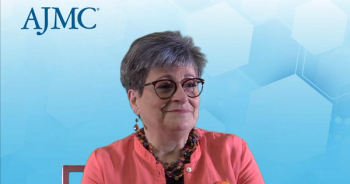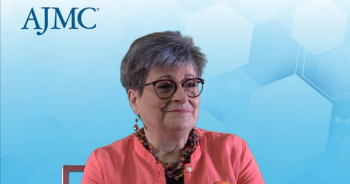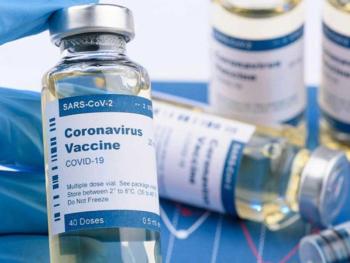
Health System
Latest News

Latest Videos

CME Content
More News

Intravenous (IV) robotic technology brings advantages for pharmacy staff, but there are also accuracy issues with the technology. In addition, this technology will not be replacing a pharmacy technician job, said Scott Soefje, PharmD, MBA, BCOP, FCCP, FHOPA, director of pharmacy cancer care and assistant professor of pharmacy, Mayo Clinic.

The CDC reported that the number of people who were hospitalized with the flu nearly doubled during the week of Thanksgiving; contraception for people producing sperm is finding promising results in clinical trials; marijuana use in children has risen 245% in the last 20 years.

Interviews with chief financial officers of rural hospitals revealed that they perceived telehealth to have some financial advantages; however, they did not believe that telehealth improved their hospitals’ financial situations.

The increasing complexity and costs of oncology care and resulting patient financial toxicity is driving more health systems to adopt oncology stewardship principles in their pharmacy practices, according to a session at the American Society of Health-System Pharmacists (ASHP) 2022 Midyear Clinical Meeting & Exposition.

Liz Lightstone, MBBS, PhD, FRCP, professor of renal medicine for the Faculty of Medicine, Imperial College London, discussed the influence of genetics and background on the care management of lupus nephritis.

Female allopathic medical students pursuing careers in dermatology were less likely than those pursuing other specialties to be from racial and ethnic groups underrepresented in medicine or be a sexual minority, with a lack of interest in underserved care and public health shown overall.

Melissa O'Connor, PhD, MBA, RN, FGSA, FAAN, endowed professor in Community and Home Health Nursing, M. Louise Fitzpatrick School of Nursing, Villanova University, and director, Gerontology Interest Group, noted that a comprehensive assessment of each patient is necessary to develop individualized care plans that can achieve better outcomes and keep older adults in the home setting.

People with a gastrointestinal biopsy of normal mucosa or nonspecific inflammation were shown to be at increased risk of Alzheimer disease and Parkinson disease.

Ferring’s Rebyota, a novel first-in-class microbiota-based live biotherapeutic, has been approved by the FDA for the prevention of recurrence of Clostridioides difficile infection (CDI) in individuals 18 years and older, following antibiotic treatment for recurrent CDI.

Early life exposure to antibiotics, particularly during weeks 2, 3, and 4 of life, was associated with a decreased risk of atopic dermatitis development.

Melissa O'Connor, PhD, MBA, RN, FGSA, FAAN, endowed professor in community and home health nursing, M. Louise Fitzpatrick School of Nursing, Villanova University, and director, Gerontology Interest Group, addressed barriers related to access, cost, and knowledge impeding technology use in home health.

Liz Lightstone, MBBS, PhD, FRCP, professor of renal medicine for the Faculty of Medicine, Imperial College London, discussed how the potential teratogenic effects of novel therapies being investigated for lupus nephritis can impede clinical trial recruitment for women of childbearing age.

Jason Ezra Hawkes, MD, MS, FAAD, board-certified dermatologist and associate professor of dermatology at the University of California Davis in Sacramento, spoke on how clinical studies in atopic dermatitis (AD) are increasingly investigating topics that remain unknown for disease management, including primary vs secondary failures and AD pathophysiology across different ethnic groups.

Joseph Alvarnas, MD, vice president of government affairs at City of Hope and chief clinical adviser of AccessHope in Duarte, California, spoke on the influence that the California Cancer Care Equity Act is having on legislative efforts in other states, as well as future steps to promote accessible, affordable, and effective cancer care for patients nationwide.

Elderly Japanese patients with a high geriatric nutritional risk index (GNRI) were associated with significantly better Clostridioides difficile infection (CDI) relapse-free survival compared with those with low GNRI.

The studies reviewed estimates of economic and humanistic impact on both patients with chronic kidney disease (CKD) as well as their caregivers.

Urban-living Indigenous children and young people in high-income countries reported a higher likelihood of current and severe symptoms of atopic dermatitis (AD) compared with a non-Indigenous population, as well as a higher incidence of bacterial skin infections.

Liz Lightstone, MBBS, PhD, FRCP, professor of renal medicine for the Faculty of Medicine, Imperial College London, spoke on issues regarding the current standard of care for lupus nephritis, including steroid overuse, pregnancy, and dose-related toxicity.

As providers strive to deliver seamless, collaborative, and deeply engaging care, advances focused on treating the whole health of a person, wherever they are in their care journey, will be necessary as the health care system continues to evolve to meet the needs of patients and providers alike.

Representation of Black and Latinx resident trainees was shown to be worse in dermatology vs other specialties, and annual representation in dermatology remained unchanged between 2005 and 2020.

Climate change and exposure to airborne pollutants was associated with incidence and exacerbation of several neurologic diseases, including migraine, dementia, and Parkinson disease.

More than a third (42.8%) of pediatric patients with hidradenitis suppurativa did not meet all major diagnostic criteria at the time of diagnosis, particularly due to failure to fulfill the recurrence interval criterion (2 or more lesions within 6 months).

Pimecrolimus and tacrolimus, 2 topical calcineurin inhibitors for the treatment of atopic dermatitis (AD), were not shown to increase the risk of cancer based on moderate-certainty evidence from a systematic review and meta-analysis.

Individuals who completed their full primary series of COVID-19 vaccination were more likely to report getting the influenza vaccine vs those who did not, and vice versa.

Joseph Alvarnas, MD, vice president of government affairs at City of Hope and chief clinical adviser of AccessHope in Duarte, California, spoke on how the California Cancer Care Equity Act will allow oncologists to escalate the care of patients with advanced cancers toward established centers that can better meet their needs, as well as implications from the decision to exclude genomic testing coverage in the bill.














